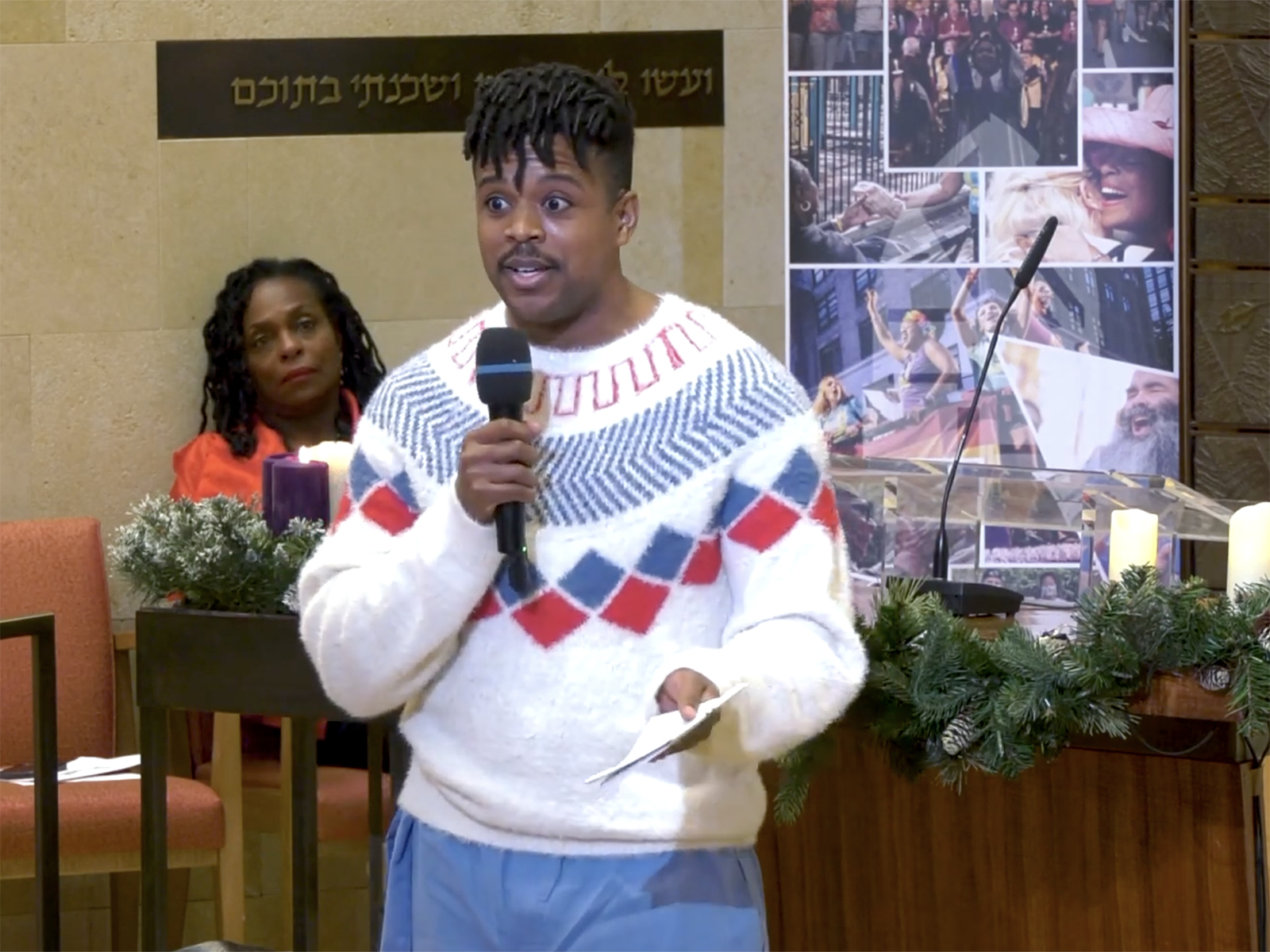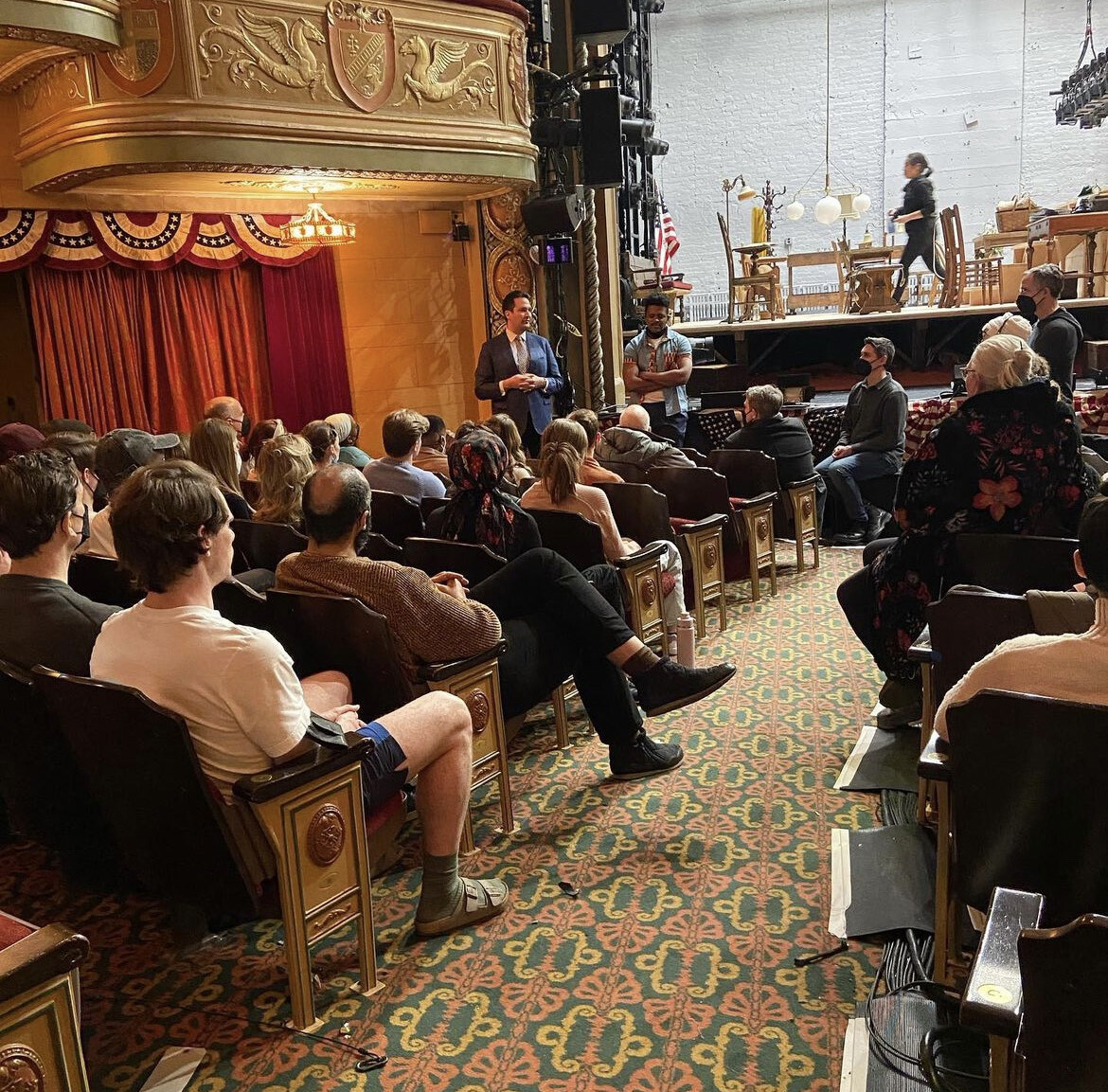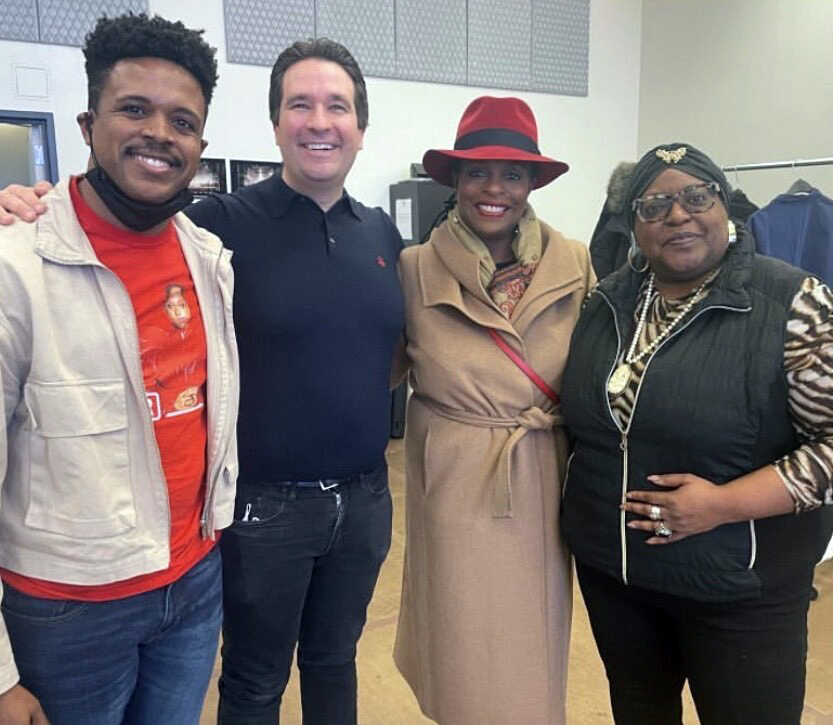
(RNS) — Matthew Johnson Harris grew up in North Texas in a family filled with complexity and a deep love of faith. But each week at the Black evangelical church where his family attended, Harris felt himself being pushed away and pulled close at the same time: He was inspired by the music and prayer, singing in the church’s praise team and choir, he said, while hearing sermons about how he was going to hell for being gay.
As a teenager, Harris experienced a crisis of faith and considered leaving Christianity altogether. One day, as he contemplated bidding Christianity farewell, he took out his Bible, only to have it fall open to the Gospel of Matthew’s seventh chapter. There on the page was not only his name but also his favorite number — he was born on July 7, or 7/7.
But it was the words of Matthew that struck him: Chapter 7 concerns judging others. “Do not judge, or you too will be judged,” Jesus says. “For in the same way you judge others, you will be judged, and with the measure you use, it will be measured to you.”
Harris did not “take that as a coincidence,” he said and reacted with wonder at reconnecting. “Oh, my God, God!” he recalls thinking, “That’s my message!”
Instead of rejecting Christianity, Harris, 36, walked away from “any preacher that told me that I wasn’t accepted in love by God.”

Matthew Johnson Harris speaks at Middle Collegiate Church in New York City, Dec. 10, 2023. (Video screen grab)
That insistence on belonging has served him as he has moved from training as a vocalist at the Boston Conservatory, to dancing with one of the country’s premier companies, the historically Black Alvin Ailey Dance Company, to directing plays and musicals in New York. While still working for the Ailey company as a choreographer and instructor in 2022, a fellowship with the Black Theater Coalition introduced him to the Broadway stage, where was a directing apprentice on the production of “Hangmen,” by the Irish playwright Martin McDonagh.
Harris had also finally found a spiritual home in the historic Middle Collegiate Church in New York City, a social justice-oriented and LGBTQ-affirming church. “There was a point where I did stop calling myself a Christian,” said Johnson, “but I thought it was now more powerful for me to tell my full journey. Christianity was my entry point, and I believe that God cares more about who I screw over than who I’m screwing.”
At his new church, he founded the Mosaic Concert Series, which “raises funds and awareness for non-profits that represent the marginalized,” according to the church’s website.
Last year, when he graduated to associate director for a production of “Parade,” about a Jewish man lynched by his Atlanta neighbors in 1915, the musical’s fearsome racial politics prompted Harris to connect his faith life with his professional life.
The real-life murder of Leo Frank, who was unfairly accused of raping and killing a 13-year-old girl, gave birth to Jewish support organizations such as the Anti-Defamation League and prompted a sea change for American Judaism. But “Parade” also invited thoughts of racism and the more common phenomenon of lynch mobs murdering Black people.

Rabbi Joshua Stanton and Matthew Johnson Harris, standing middle left and right, speak with the “Parade” theater company in New York. (Courtesy photo)
With Middle Collegiate’s pastor, the Rev. Jacqui Lewis, and an Ashkenazi rabbi — one of the co-authors here, Josh — as facilitators, Harris engaged the cast in discussions about identity, as well as providing a resource for pastoral care for all those working on the show.
Bringing religious leaders to meet with people who had experienced rejection from religion — not to proselytize, but to provide a framework for important conversations — Harris was performing a kind of ministry that evoked Jesus’ example of stepping into uncomfortable spaces to spend time with those who were overlooked or looked down upon.
In the discussions, Black actors and cast members objected to the script’s implication that a Black person — a janitor who is initially blamed for the girl’s killing — was responsible for the wrongful conviction of the Jewish protagonist. Jewish actors and cast members found that the show recalled historical traumas that had touched their families. Nearly everyone was shaken when present-day white supremacists protested in front of the theater and defamed the show’s protagonist as a pedophile.
Rather than downplaying or sidestepping these points, Harris worked with his colleagues to turn them into an opportunity for learning and articulating personal stories. If actors and crew members could hear, see and better understand one another without turning suffering into a competition, they could more easily support each other through the emotional journey of a 24-week production. Cast members also found new language to express their concerns about the play and to focus on process as much as production.
“The conversations were uncomfortable, candid and joyous,” Harris later told Playbill.

Matthew Johnson Harris, from left, Rabbi Joshua Stanton, the Rev. Jacqui Lewis and Ann James. (Courtesy photo)
To share these revelations with audience members, the production posted a resource page drawn from their discussions on the show’s website.
There is an old trope that theater is akin to religion, with the devotion of audiences and practitioners and its ability to heal. But the intensity of its art, Harris notes, can burn out actors who play painful roles that they take on night after night, seven shows per week.
Harris now plans to bring in religious leaders as future consultants, hoping that they can help artists navigate topics at the intersection of identity and their work. By creating a model for dealing with the emotional risks of performing, Harris may have deepened the spiritual impact of theater for audiences and practitioners alike.
(Rabbi Joshua Stanton is rabbi of East End Temple in Manhattan and a senior fellow at Clal. Rabbi Ben Spratt serves as senior rabbi of Congregation Rodeph Sholom, also in Mahhattan. The views expressed in this commentary do not necessarily reflect those of Religion News Service.)
Source link






